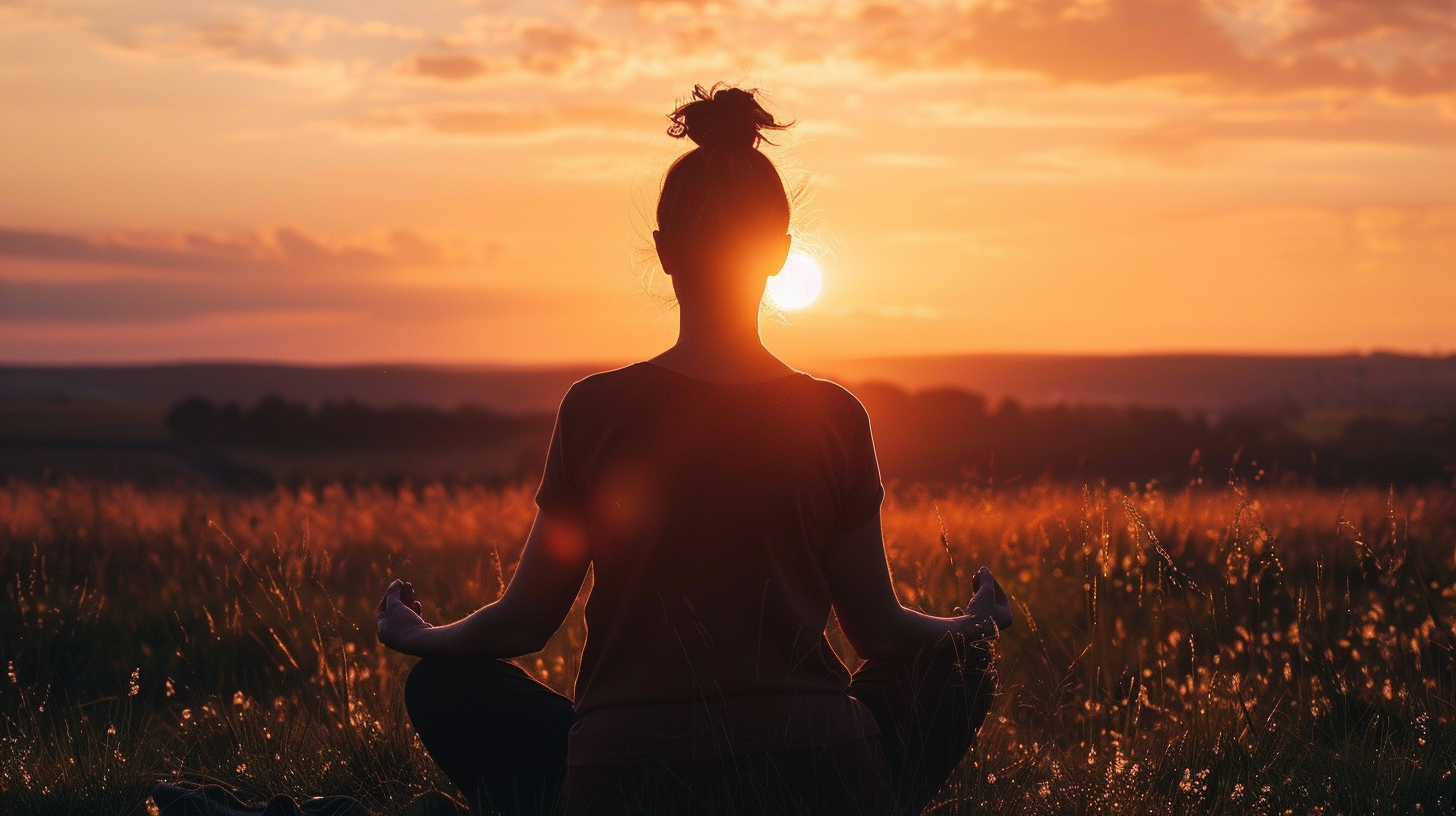Table of Contents Show
In our fast-paced lives, finding time for self-care seems like a challenging, difficult dilemma. We’ve all been there, juggling job demands, personal responsibilities, and the constant barrage of information from our digital devices. It’s easy to forget that our mental and physical wellbeing should be a priority. But how do we incorporate effective self-care strategies without completely overhauling our already packed schedules? We’re about to explore simple yet impactful ways to nurture ourselves, from quick mindfulness practices to embracing the healing power of nature. Join us as we uncover the secrets to thriving in a busy world, where taking care of ourselves isn’t just an option, but a necessity.
Key Takeaways
- Incorporate mindfulness and physical activity into daily routines to boost mental and physical health.
- Establish and maintain personal boundaries to ensure work-life balance and prevent burnout.
- Engage in self-care practices like meditation, nature walks, and journaling to revitalize mind and body.
- Prioritize hydration, nutritious eating, and quality sleep to enhance overall wellbeing and energy levels.
Understanding Self-Care
Self-care involves actively taking steps to preserve or improve one’s own health and wellbeing. We’re constantly seeking ways to break free from the pressures of daily life, and self-care stands out as a crucial tool in our quest for freedom. It’s not just an indulgence; it’s a pivotal aspect of living a balanced, fulfilling life. By embracing self-care, we’re not running from our responsibilities. Instead, we’re bolstering our capacity to meet them head-on, with resilience and vitality.
We often hear about self-care, but what does it really entail? It’s about listening to our bodies and minds, recognizing when we’re stretched too thin, and taking action to address our needs. This could mean setting aside time for activities that rejuvenate us, like reading, walking in nature, or practicing meditation. It’s about making conscious choices towards healthier eating, regular physical activity, and ensuring we get enough rest. Self-care is also about setting boundaries, learning to say no, and understanding that we can’t pour from an empty cup.
In today’s fast-paced world, carving out time for self-care can seem like a luxury we can’t afford. But let’s challenge that notion. We’ve got to see self-care as a non-negotiable part of our lives. It’s the cornerstone upon which we can build a life of freedom, energy, and joy. By committing to self-care, we’re taking control of our wellbeing, and in turn, empowering ourselves to live more fully and freely.
Prioritizing Your Wellbeing
We’ve explored what self-care means, and now it’s time to focus on how we can put our wellbeing first. Setting personal boundaries and embracing mindful moments are key strategies we’ll explore. These steps help us make sure we’re not only surviving but thriving in our daily lives.
Setting Personal Boundaries
Establishing personal boundaries is essential for maintaining our wellbeing and ensuring we don’t overextend ourselves. In our pursuit of freedom and self-care, setting clear boundaries allows us to prioritize what truly matters. Here’s how we can effectively set personal boundaries:
- Learn to say no: It’s okay to decline requests that drain our energy.
- Identify priorities: Focus on what aligns with our values and goals.
- Communicate openly: Clearly express our limits to others.
- Practice self-awareness: Understand our limits and recognize when they’re being tested.
- Seek support: Lean on friends or professionals who respect our boundaries.
Embracing Mindful Moments
After setting personal boundaries, it’s equally important to focus on embracing mindful moments to further enhance our wellbeing. We’re constantly bombarded with tasks and notifications, making it easy to lose sight of the present. But when we pause, even briefly, to engage in mindfulness, we reclaim our freedom. It’s about savoring the small joys, like the warmth of a morning coffee or the quiet of an early morning. These moments ground us, reminding us that we’re not just here to complete tasks but to live fully. By making mindfulness a priority, we’re not just surviving the hustle; we’re thriving in it. Let’s commit to finding those pockets of peace, for it’s in them that we truly find our freedom.
Quick Mindfulness Practices
In today’s fast-paced world, integrating quick mindfulness practices into our daily routine can greatly enhance our wellbeing. We’re all seeking freedom from the relentless pace of life, and these practices offer a lifeline to tranquility and a sense of control. Let’s explore a few we can weave into the fabric of our hectic days, without needing to carve out extra time from our already overflowing schedules.
-
Mindful Listening: Let’s make an effort to truly listen when we’re engaging in conversations, absorbing not just the words but the emotions and intentions behind them. This helps us stay present and connected.
-
Savoring Your Beverage: Whether it’s your morning coffee or a glass of water, take a moment to really taste and enjoy it. Notice the temperature, the flavor, and how it feels as you drink. It’s a simple yet effective way to ground ourselves.
-
Gratitude Moments: Throughout the day, pause to mentally list three things you’re grateful for. Gratitude shifts our focus from what we lack to the abundance we possess.
-
Nature Observations: Even if it’s just a glance out the window, take a brief moment to observe the sky, a tree, or a flower. Nature’s simplicity can bring profound calmness.
-
Mindful Movement: Stretch or simply change your posture with awareness. Notice how your body feels with each movement. It’s a quick way to reconnect with your physical self and release tension.
Incorporating these practices doesn’t require freedom from our responsibilities but rather invites freedom within our busy lives, allowing us to navigate our days with a more centered and peaceful mind.
The Power of Breathing
Building on the foundation of mindfulness practices, let’s explore the transformative power of focused breathing techniques to enhance our wellbeing. Breathing is something we do every moment of our lives, yet we often overlook its potential as a tool for deep relaxation and stress relief. By directing our attention to our breath, we can reveal a sense of freedom and control that is immensely liberating.
Let’s immerse ourselves in how we can harness this power. First, we’ve found that setting aside just a few minutes each day to practice deep breathing can make a significant difference. This isn’t about adding another task to our busy schedules but rather finding moments of pause amidst the chaos. It’s in these pauses that we discover a sense of spaciousness and freedom within ourselves.
We prefer techniques like the 4-7-8 method, where you breathe in for four seconds, hold your breath for seven, and exhale for eight. This method slows down our heart rate and encourages our body to relax, signalling to our mind that we’re in a space of safety and calm.
Another practice we love is mindful breathing, where we simply observe our breath, noticing the sensations as air flows in and out of our bodies. This practice anchors us in the present moment, cutting through the noise of our thoughts and external pressures.
Incorporating these breathing exercises into our daily routine has been a game-changer. They offer a quick, accessible way to reduce stress and improve our overall wellbeing, giving us the freedom to navigate our lives with a clearer, more focused mind.
Physical Activity Tips
Shifting from the calm of focused breathing, let’s immerse ourselves in the dynamic world of physical activity, an essential pillar for sustaining our mental and physical health. It’s not just about pushing our limits in a gym; it’s finding joy in movement, liberating our bodies, and breaking free from the sedentary chains that bind us. We’re here to embrace the freedom that comes with being active, exploring various ways to invigorate our bodies and minds without feeling confined by rigid routines.
To inspire a more active lifestyle, consider these liberating tips:
- Explore Nature: Take your workout outside. Hike, swim, or cycle in the great outdoors and let the beauty around you fuel your exercise.
- Dance Like Nobody’s Watching: Crank up your favorite tunes and dance around your living room. It’s a fantastic way to boost your heart rate and lift your spirits.
- Incorporate Play: Remember the joy of play. Join a recreational sports team, play tag with your kids, or try a game of frisbee in the park.
- Follow Online Classes: With countless free online classes, from yoga to high-intensity interval training (HIIT), there’s something for everyone. Find what excites you and jump in.
- Make It Social: Partner up with friends or join a community group focused on physical activity. It’s a great way to stay motivated and enjoy the journey together.
We’re not just seeking to move our bodies; we’re aiming to free our spirits. Let’s treat physical activity not as a chore but as a celebration of what our bodies can do, embracing the freedom that comes with every step, leap, and dance.
Healthy Eating Habits
Now that we’ve explored the joy and freedom of physical activity, let’s focus on nourishing our bodies with healthy eating habits. Embracing a diet rich in fruits, vegetables, whole grains, and lean proteins can have a significant impact on our mental and physical wellbeing. It’s not about strict limitations or depriving ourselves of the foods we love. Instead, it’s finding a balance that allows us to feel great, have more energy, and enjoy our lives to the fullest.
We’ve discovered that planning our meals can make a huge difference. By taking a little time each week to decide what we’re going to eat, we can avoid the temptation of fast food and make healthier choices that support our wellbeing. It’s also important to listen to our bodies and eat when we’re truly hungry, not just when we’re bored or stressed.
Hydration is another key aspect of healthy eating. We make sure to drink plenty of water throughout the day. It helps us stay energized and keeps our minds clear.
Lastly, we’ve learned the importance of being mindful about what we eat. Enjoying our food slowly and savoring each bite can help us feel more satisfied and less likely to overeat. It’s about experiencing the freedom to enjoy our food without guilt.
Incorporating these healthy eating habits into our daily lives has given us a newfound sense of freedom and control over our health. It’s an empowering part of our self-care routine that supports our overall wellbeing.
Sleep’s Role in Self-Care
After exploring healthy eating habits, we’re turning our attention to the important role sleep plays in our self-care routine. We’ll discuss why quality sleep is essential, introduce effective sleep hygiene practices, and examine its impact on our mental health. Understanding these aspects can greatly enhance our overall wellbeing.
Importance of Quality Sleep
Understanding the critical importance of quality sleep is pivotal in our journey towards excellent self-care. We’ve all felt the strain of sleepless nights, but it’s the long-term benefits of sound sleep that empower us with the freedom to live our lives to the fullest. Here’s why prioritizing sleep is non-negotiable:
- Boosts mental clarity, sharpening our decision-making and creativity.
- Enhances emotional resilience, helping us navigate life’s ups and downs with grace.
- Strengthens the immune system, arming us against illnesses.
- Improves physical performance, from daily tasks to athletic endeavors.
- Supports healthy weight management, by regulating hormones that affect appetite.
Embracing quality sleep isn’t just about avoiding tiredness; it’s about unleashing our full potential in a demanding world.
Sleep Hygiene Practices
To maximize the benefits of quality sleep for our wellbeing, adopting effective sleep hygiene practices is essential. We’ve all experienced the struggle of tossing and turning at night, our minds racing with tomorrow’s tasks. It’s time we reclaim our nights and, by extension, our days. Establishing a regular sleep schedule trains our body’s internal clock, signaling when it’s time to wind down. We should also create a pre-sleep routine that signals to our body it’s time to rest, whether that’s reading a book or meditating. Let’s make our bedrooms sanctuaries for sleep: cool, dark, and quiet. And remember, cutting back on caffeine and screen time before bed can drastically improve our sleep quality. It’s in our power to transform our nights and, in turn, our days.
Impact on Mental Health
Having explored how to enhance our sleep quality, it’s now important to recognize sleep’s profound impact on our mental health. We’ve all felt the difference a good night’s sleep can make. It’s not just about feeling rested; sleep plays an important role in our mental wellbeing. Here’s how:
- Improves mood and reduces irritability
- Enhances cognitive performance and decision-making
- Lowers the risk of developing mental health disorders
- Boosts emotional resilience
- Facilitates the processing of emotional experiences
Digital Detox Strategies
In our fast-paced digital world, it’s essential that we carve out time for a digital detox to rejuvenate our mental and physical health. With screens dominating our lives, it’s easy to forget the freedom that comes from disconnecting. We’re constantly bombarded with notifications, emails, and the endless scroll of social media, which can overwhelm our senses and clutter our minds.
To combat this, we’ve adopted several strategies that allow us to break free from the digital leash. To start with, we designate tech-free zones in our homes, places where gadgets are strictly off-limits. This creates safe havens where our focus is solely on relaxation or spending quality time with loved ones.
We also set aside specific times during the day when we consciously put away our devices. Whether it’s during meals, the first hour after waking up, or right before bed, these moments of disconnection help us to be more present and mindful.
Implementing device curfews has been a game-changer for us. By turning off our gadgets an hour before bedtime, we’ve noticed a significant improvement in our sleep quality, which in turn boosts our overall wellbeing.
The Importance of Hydration
We often underestimate the power of staying hydrated, yet it’s a cornerstone of maintaining our health and wellbeing. In the hustle of our daily lives, we’re constantly seeking ways to feel better, perform better, and live freely. Hydration, surprisingly, is key to unleashing much of that freedom. It’s not just about quenching thirst; it’s about nourishing our bodies at a vital level.
When we’re well-hydrated, we’re arming ourselves with the tools to tackle life head-on. Here’s why making hydration a non-negotiable part of our routine is a game-changer:
- Boosts Energy Levels: Dehydration can lead to fatigue. Keeping ourselves hydrated helps in maintaining optimum energy levels, allowing us to chase our dreams without unnecessary sluggishness.
- Enhances Brain Function: Our brains thrive on proper hydration. From improved concentration to sharper memory, drinking enough water can significantly impact our cognitive functions.
- Supports Physical Performance: Whether it’s a morning jog or an intense workout session, staying hydrated guarantees our physical performance doesn’t suffer.
- Promotes Healthy Skin: Hydrated skin is happy skin. Regular water intake can help keep our skin glowing and free from signs of premature aging.
- Detoxifies the Body: Water plays a vital role in flushing out toxins, supporting kidney function, and maintaining a healthy digestive system.
Let’s not overlook the simplicity and power of hydration. It’s an accessible, straightforward habit that paves the way for a more vibrant, energetic, and free life. Embracing hydration is embracing a commitment to our wellbeing, one sip at a time.
Setting Boundaries
We’ve explored how staying hydrated is important for our wellbeing; now, let’s turn our attention to setting boundaries, an equally essential aspect of self-care. Understanding our personal limits, learning to say no effectively, and maintaining a balance between work and life can greatly enhance our mental and physical health. These strategies empower us to prioritize our needs and protect our energy in a bustling world.
Identifying Personal Limits
Recognizing and establishing our personal limits is an important step toward maintaining our wellbeing. It’s about listening to our bodies and minds, then acting to preserve our energy and peace. Here are ways we can start:
- Tune into our emotional and physical responses to activities and people.
- Reflect on past experiences to identify what drains or replenishes us.
- Set aside time for introspection to understand our true needs and desires.
- Acknowledge the signs of burnout and take them seriously.
- Regularly assess and adjust our limits as our life circumstances change.
Saying No Effectively
After identifying our personal limits, it’s equally important to learn how to assert them by saying no effectively. Saying no isn’t just about rejecting requests; it’s about honoring our own needs and prioritizing our wellbeing. It’s a critical step towards freedom from overcommitment and stress.
| Tips | Why It Works | Freedom Gained |
|---|---|---|
| Be Direct | Minimizes confusion | More time for self |
| Offer Alternatives | Shows willingness | Maintains relationships |
| Practice Often | Builds confidence | Easier decision-making |
We’ve got to remember, asserting our boundaries is not selfish; it’s essential. It empowers us to manage our energy and keeps us aligned with our priorities. Let’s make saying no a practice, not a one-time effort.
Balancing Work and Life
Striking a balance between work and life demands setting clear boundaries to safeguard our personal time and mental health. We’re all aiming for that sweet spot where we can excel in our careers without sacrificing our well-being. Here’s how we can achieve it:
- Communicate clear work hours to colleagues and stick to them.
- Prioritize tasks to focus on what truly matters each day.
- Take regular breaks during work to recharge and avoid burnout.
- Learn to delegate tasks when possible to maintain focus on high-priority work.
- Cultivate hobbies outside of work to enrich our lives and detach from work stress.
Cultivating Positive Relationships
We can greatly enhance our wellbeing by actively nurturing positive relationships in our lives. It’s about creating a network of support that uplifts, inspires, and encourages us on our journey. Positive relationships aren’t just a source of joy; they’re also a foundation for resilience and personal growth. By choosing to surround ourselves with people who respect our freedom and personal boundaries, we cultivate an environment where we can thrive.
To foster these meaningful connections, it’s essential we communicate openly and authentically. Let’s not shy away from expressing our needs and desires. Listening is just as vital. It’s through genuine listening that we comprehend others and build deeper bonds. Remember, it’s about quality, not quantity. A few strong, supportive relationships can be more beneficial than numerous superficial ones.
We should also be proactive in showing appreciation for those around us. A simple ‘thank you’ or a small act of kindness can reinforce our bonds and create a positive atmosphere. Let’s make an effort to be there for others, just as we hope they’d be there for us.
Time Management Techniques
Mastering time management techniques often becomes a cornerstone for achieving a balanced and fulfilling life. We’re all aiming for that sweet spot where we feel productive yet not overwhelmed, accomplished yet free. It’s a delicate balance, but with the right strategies, we can claim back our time and enjoy the freedom we crave. Here are a few techniques that have stood out for us:
- Prioritize tasks: We’ve learned to identify what’s urgent and important, focusing on these tasks first. It’s about quality, not quantity.
- Set realistic goals: We aim for achievable goals that motivate us rather than set us up for failure. It’s empowering to tick off those boxes!
- Use a planner: Whether it’s digital or paper, a planner is our roadmap. It helps us visualize our day, week, or month ahead, making it easier to manage our time effectively.
- Learn to say no: This was a game-changer for us. Realizing we don’t have to say yes to every request or opportunity freed up so much of our time.
- Take breaks: Counterintuitive, but taking short, regular breaks actually boosts our productivity. It’s all about giving our brains a rest and then getting back to work refreshed.
Incorporating these techniques hasn’t just improved our productivity; it’s given us the freedom to enjoy our lives more fully. We’re now better at managing our responsibilities without feeling bogged down, making room for what truly matters to us. It’s a liberating journey, and we’re here for it.
Embracing Nature
We’ve explored how managing our time can greatly improve our wellbeing; it’s now time to turn our attention to the great outdoors. Engaging in outdoor activities not only enhances our physical health but also plays an important role in our mental wellbeing, underscoring the importance of green spaces. Nature offers a unique form of stress relief, reminding us of the healing power of stepping outside and breathing in the fresh air.
Outdoor Activities Benefits
Embracing nature through outdoor activities can greatly boost our mental and physical wellbeing. It’s about breaking free from the confines of our daily routines and reconnecting with the world around us. Here’s why we all should make time to step outside:
- Enhances Imagination: Nature’s beauty sparks our creativity.
- Reduces Tension: Fresh air and natural scenery lower stress levels.
- Improves Health: Activities like hiking or cycling keep us physically fit.
- Elevates Mood: Sunlight and greenery uplift our spirits.
- Promotes Social Interaction: Group activities foster connections with others.
Let’s seize the opportunity to embrace freedom and life force. Outdoor adventures await, promising a rejuvenation of body and mind that we often forget we need.
Green Spaces Importance
Building on the benefits of outdoor activities, it’s also important to recognize how essential green spaces are to our wellbeing. Whether it’s a sprawling park or a small garden, these areas offer us a breeze of fresh air amidst our hectic lives. They’re not just spots for leisure; they serve as vital oases where we can reconnect with nature, break from the digital world, and simply be. We often underestimate the power of a quiet moment under the shade of a tree or a walk along a grassy path, but it’s these simple pleasures that ground us. Incorporating visits to green spaces into our routines isn’t just a luxury—it’s a necessity for maintaining our mental equilibrium and fostering a sense of freedom.
Nature’s Stress Relief
In the embrace of nature, we find a powerful antidote to stress that rejuvenates both mind and body. Stepping outside, we’re not just escaping the confines of our daily routines; we’re reconnecting with the essence of true freedom. It’s about feeling the earth beneath our feet and the wind in our hair. Here’s how we can immerse ourselves in nature’s stress relief:
- Take mindful walks in local parks or forests.
- Practice outdoor yoga or meditation.
- Grow a garden, even if it’s just a few plants.
- Plan weekend hiking or camping trips.
- Engage in birdwatching or nature photography.
Each activity not only breaks the monotony but also strengthens our bond with the natural world, offering a revitalizing escape we all yearn for.
Reflective Journaling
Reflective journaling offers a powerful tool for self-discovery and personal growth, allowing us to explore our thoughts and feelings in a structured way. It’s like having a conversation with ourselves, where we’re free to express whatever’s on our minds without judgment. We’ve found that it’s not just about venting frustrations, but also celebrating our successes and recognizing our own resilience.
By dedicating time to write down our experiences, we’re carving out a space for ourselves in a world that often demands we rush from one task to the next. It’s our way of pressing pause, giving ourselves permission to reflect on where we’ve been and where we’re headed. We’re not just going through the motions; we’re actively engaging with our lives, identifying patterns that may be holding us back or opportunities we’ve overlooked.
We’ve noticed that the more we journal, the clearer our understanding of ourselves becomes. It’s like we’re mapping out our inner landscape, discovering hidden strengths and confronting fears we didn’t even know we had. This process of reflection doesn’t just clarify our thoughts; it empowers us to make changes that align with our true desires.
We encourage everyone to give reflective journaling a try. Start with just a few minutes each day, and see where it takes you. There’s no right or wrong way to do it—just the freedom to explore your inner world, one page at a time. It’s an investment in your mental and emotional freedom, a step towards living a life that’s truly your own.
Conclusion
As we navigate our bustling lives, let’s remember to cradle our wellbeing like a delicate flame in the wind. Through quick breaths that mimic the ocean’s calm, steps that tread paths of resilience, and words shared in the warmth of connection, we fuel this light. Let’s not let the rush dim our glow. Instead, embracing each moment like a leaf to sunlight, we’ll flourish. Together, in this journey, we are gardeners tending to the soul’s garden, ensuring it thrives.








